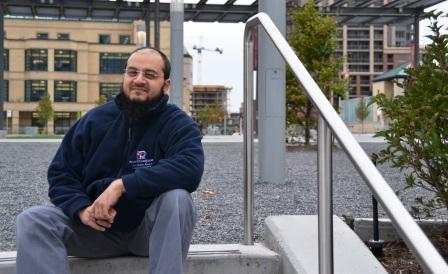Saleem Chagtai says his group, the Islamic Education and Research Academy (IERA), never intended to offend or anger the Jewish and lesbian, gay, bisexual, and trans communities when it booked speakers who have been criticized for past anti-gay and anti-Jewish comments at its upcoming Canadian launch event in Toronto on Oct 23.
IERA actually wants to promote dialogue with the wider non-Muslim community, including the Jewish and LGBT communities, Chagati says. He blames the controversy on misreported and misquoted statements from his guest speakers and the action of a small minority of “extremist” groups that refused to allow his group to respond to their concerns.
The group had originally booked the Sheraton Centre for its conference, but the hotel cancelled the booking last week after The Toronto Star reported that a number of planned speakers had a history of making anti-gay and anti-Jewish comments. The group has since relocated the conference to the Islamic Centre of Canada in Mississauga.
Chagtai says accusations that one of the conference speakers called for homosexuals to be stoned to death are a misrepresentation of actual comments.
“I saw the blog post, the offending article by Abdur Raheem Green. His point was very simple: in an Islamic state, a public act of—there’s no other way of saying—penetrative anal sex in public is punishable in Islam. By the way, that goes the same for heterosexual couples as well,” he says. “Now that never happens, not even in the western world, but it’s a deterrent. But it’s a discussion about the morality.
“So there was no advocation at all of any violence against any homosexuals, and we would condemn that in the strongest possible terms, because it’s against the law, it’s immoral and it goes against the Islamic teaching of dialogue and discussion,” he says.
Another speaker, Abdullah Hakim Quick, has apologized for the wording of past writings that suggested that homosexuals want to spread AIDS to the Muslim community and for referring to the “filth” of Jews and Christians, Chagtai says.
As to evidence that another speaker, Hussain Yee, has called “the Jews” the “most extremist nation in the world” and suggested that Jewish people perpetrated the 9/11 attacks, Chagtai condemned the comments but suggested that opening up that dialogue was still important.
“The speakers here are not part of IERA. So when we invite them to conferences, we’re not fully aware of what they’ve said. As soon as we become aware of these things, we would speak with them and we’d debate with them. If we find something’s objectionable, we’ve got the relationship with these people that we can express that,” Chagtai explains.
Chagtai says he hopes to open channels of dialogue between the Muslim community and the LGBT and Jewish communities so that controversies like these can be dealt with in the open.
“We need to open discussions with the LGBT community,” he says. “Why should we exclude them when it comes to discussions about religion and morality? The LGBT community is going to have its own members and its own view of morality and religion, so let’s get them involved in the discussion.”
IERA’s ultimate goal is to encourage Muslims to cooperate with non-Muslims for the greater good, Chagtai says.
“As Muslims, we are forbidden to remain a ghettoized community,” he says. “Wherever we travel, we are supposed to be in a position where we are working for humanity because God has given us that as a command.
“We need to work more with the Jewish community on issues of morality, we need to work to eradicate poverty in our cities, eradicating crime. The same thing goes for the LGBT community. Maybe we need to start working together combating HIV/AIDS or deal with some of the other problems that are affecting the LGBT Community. Why not? The Koran tells us we need to cooperate with one another on righteousness or goodness.”
Chagtai says he’d like to see members of the Jewish and LGBT communities attend this weekend’s conference in order to begin the dialogue.


 Why you can trust Xtra
Why you can trust Xtra


